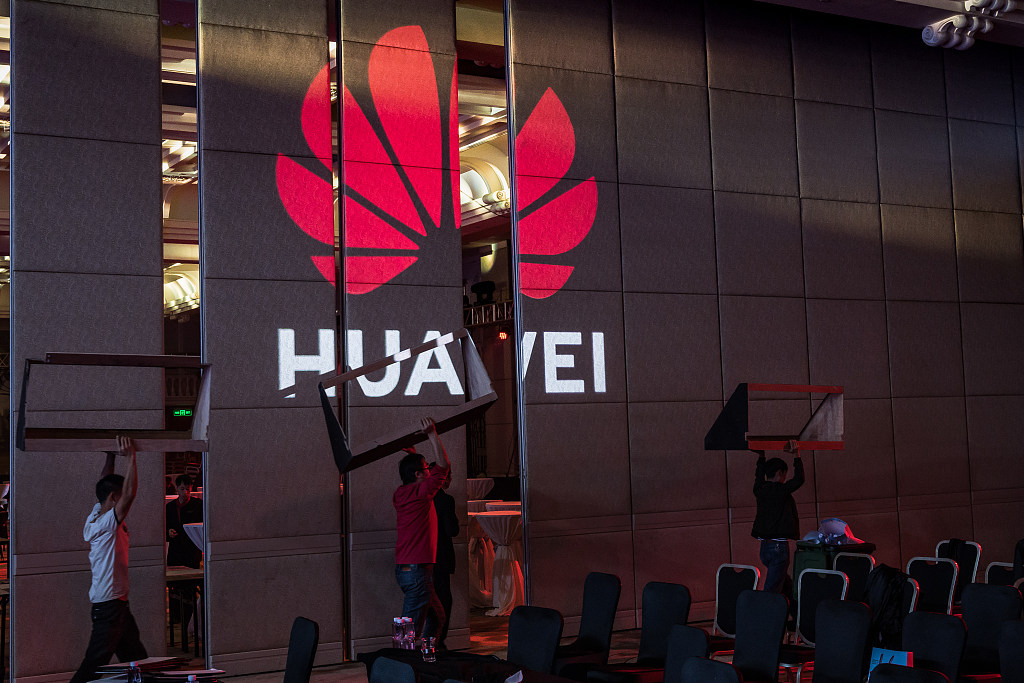
TV Show
14:59, 15-May-2019
Is China-U.S. tech collaboration possible?
The Heat
01:38

China and the United States are working together to develop new technologies and create the future. The two largest economies in the world are cooperating in fields like artificial intelligence, advanced manufacturing and self-driving cars. But the trade dispute and accusations of espionage might slow down that partnership.
Over the last two years, President Trump administration accused China of stealing American technology. Despite a few recent setbacks, two-way cooperation on campuses and laboratories has been pushed ahead. For instance, UCLA, a public university in Los Angeles, has two dozen agreements with Chinese academic institutions in Zhejiang Province and Shanghai.
Craig Allen, who is the president of the U.S.-China Business Council, urges Washington to collaborate with Beijing on innovation rather than trying to control the technical cooperation.
Allen's main concern is if either country exaggerates the national security as a way to pursue economic interests because that will "lead less trade and less investment." He encourages both governments to compromise in the trade negotiation to allow more technology cooperation. In addition, sometimes the chaotic science research environment in China will also impact the cooperation. Thus, he hopes there will be "more transparency and predictable ways to collaborate across borders in the near future."
He notes that Chinese scientists and engineers have made marvelous achievements. And scientists from the two countries can work together to contribute more human knowledge. "But we need to make sure that the playing field is level, the ethics are appropriate, the competition is bounded by law, and the governments are neutral arbitrators," he says.
Amy Zalman, who is the CEO of Prescient, a consulting company on business and technology, thinks the U.S. tech companies should consider the power of consumers in China when they make decisions.
"This is the global technology, it is inherently global," says Zalman, "so unless the two sides decide to truly split off from each other, they are really going to have to work together." She thinks the increasing power of consumers in China and other Asian area makes it important for the U.S. enterprises to take China into consideration.

Workers prepare the venue for Huawei HAS2019 Global Analyst Summit in Shenzhen, China April 16, 2019. /VCG Photo
Workers prepare the venue for Huawei HAS2019 Global Analyst Summit in Shenzhen, China April 16, 2019. /VCG Photo
Zalman indicates the Trump administration's criticism of the Huawei and other Chinese tech companies stealing American technology is outmoded. Moreover, "thinking of certain technologies as potentially weaponized is not useful," says Amy. She believes it is a mistake that people still think in terms of nation-states is defining the world right now.
Zhang Xiaochen, who is the president of FinTech4Good, believes the technology cooperation will benefit the manufacturers business and the consumers in the U.S. and China.
Zhang believes that China will become one of the major tech markets in the world and if the U.S. companies want to expand, then they need to get involved in China. Many American tech companies such as Apple and Google take China as the main market, and the feedback from China consumers will improve their products.
What's more, Zhang indicates that the thought that the development of AI and other technologies in China are driven by national policies is far from the fact. Instead, some large companies like Baidu and Alibaba have already started technology research much earlier before the government's policies were introduced. So it is a misconception that the government controls all the technologies in China. He also thinks it is not realistic for the U.S. to try and block a Chinese company like Huawei.
Ray Wang, who is the principal analyst and founder of Constellation Research, considers China and the U.S. have their own advantages, and the cooperation between the two countries will benefit each other. A big challenge is the two countries have different concerns for their own interests.
According to Wang, the challenges are that the two countries don't have a framework for communication and collaboration. In the long range, this collaboration will be very important for two main reasons. On the one hand, China will face the aging population problem a few years later because of the one-child policy, "which requires a lot more collaboration than the big posture that is holding today," he says. On the other hand, the U.S. is suffering a problem where it's incurring more and more debt in the economy. In the short term, however, the two presidents with large egos make the compromise difficult to reach.
"We're at a point where societies have different views to technologies like AI. Is AI be used by a state to control their citizens, or AI will allow people to collaborate and innovate," says Wang, "The real question is that we don't know if the technology cooperation system is driven by nation-states or societies."
(If you want to contribute and have specific expertise, please contact us at opinions@cgtn.com.)

SITEMAP
Copyright © 2018 CGTN. Beijing ICP prepared NO.16065310-3
Copyright © 2018 CGTN. Beijing ICP prepared NO.16065310-3